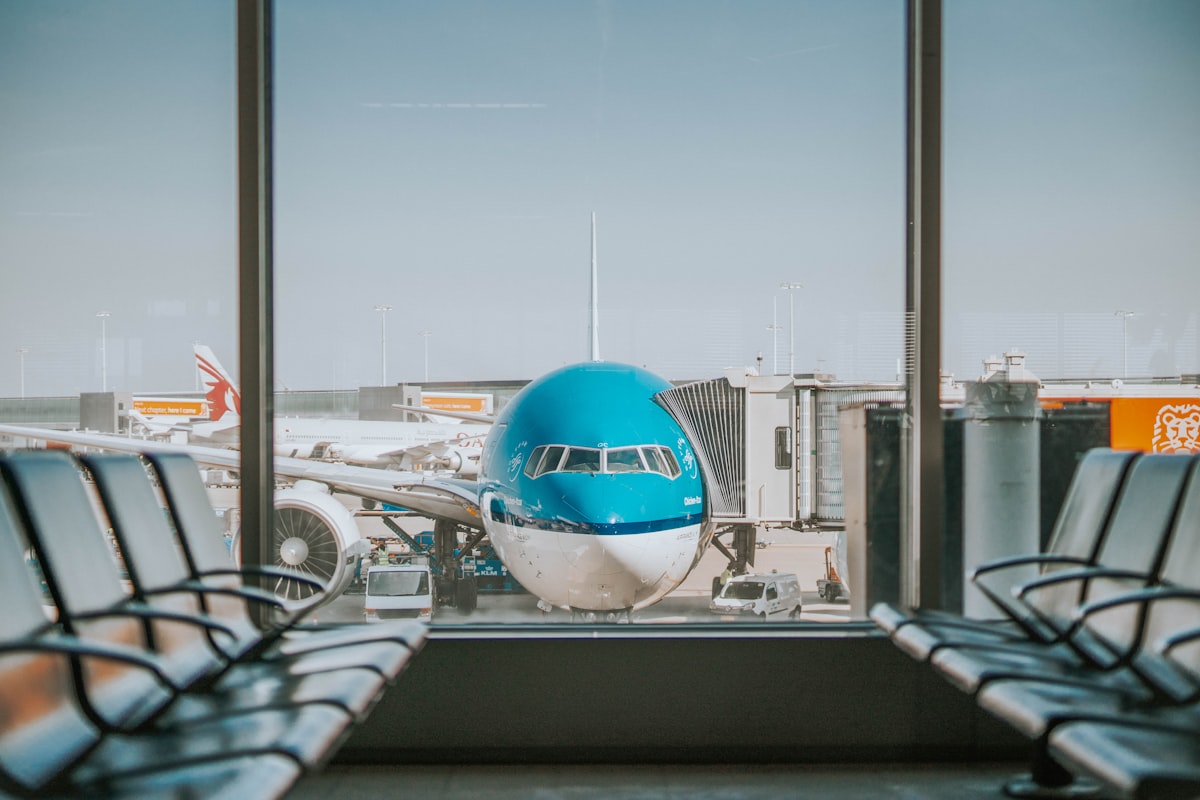Corporate Travel Booking Software: What I’ve Learned Managing Travel for a 200-Person Company
I’ve been handling corporate travel logistics for about six years now. Started when our office manager quit unexpectedly and someone said, “Hey, you’re organized, right?” That’s how most people end up in this role, I think. And over those six years, I’ve tested more booking platforms, argued with more airline reps, and read more travel policy documents than I ever imagined I would. So here’s what I actually know about making corporate travel booking work.

Picking the Right Booking Tools
This is the first real decision you’ll make, and it matters. The right tools save time and money. The wrong ones create chaos. Here’s what’s out there:
- Travel Management Companies (TMCs): These are full-service outfits that handle flight bookings, hotel reservations, car rentals, expense reporting — the works. They’re best for larger organizations that need hands-on support. Think of them as outsourced travel departments.
- Online Booking Tools (OBTs): Platforms like Concur, Egencia, and TripActions let employees book their own travel within company-set guidelines. This is where most mid-size companies land, and honestly, it’s where the best balance of control and flexibility lives.
- Mobile Apps: Most OBTs offer mobile versions, which is non-negotiable at this point. People need to rebook flights at the gate, change hotels from a taxi, update itineraries on the go. If your tool doesn’t have a solid mobile app, keep looking.
Writing a Travel Policy That People Actually Follow
Probably should have led with this. A travel policy is only useful if employees understand it and can follow it without a PhD in bureaucracy. Keep it clear. Keep it reasonable. Here’s what to cover:
- Approval process: Who can approve travel requests? What’s the budget threshold? What justification is needed? Spell it out so there’s no guessing.
- Expense rules: Define what’s reimbursable, set spending limits, and be specific. “Reasonable meal expenses” means different things to different people. Give numbers.
- Booking procedures: Which tools should employees use? Are there preferred airlines or hotel chains? If you’ve negotiated corporate rates somewhere, make sure people know about them.
- Safety guidelines: Include emergency contacts, health advisories, and procedures for traveling to higher-risk regions. This isn’t optional — it’s your duty of care.
Using Data to Make Smarter Decisions
Data is where corporate travel management gets genuinely interesting. Or at least, as interesting as spreadsheets can get.
- Spend analysis: Track where the money goes. Which routes are most expensive? Are certain departments overspending? This data gives you leverage when negotiating with suppliers and helps you spot waste you didn’t know existed.
- Policy compliance: Analytics can tell you who’s booking within policy and who’s going rogue. Not to be punitive — sometimes non-compliance just means the policy needs adjusting.
- Employee satisfaction: Gather feedback on the booking experience. If people hate the tool, they’ll work around it, which defeats the whole purpose. Survey data helps you catch problems early.
Negotiating with Travel Suppliers
This is one of my favorite parts of the job, honestly. There’s real money to be saved here.
- Preferred supplier agreements: Lock in rates with specific airlines, hotels, and car rental companies. These agreements often include perks — upgrades, loyalty points, priority service — that make employees happier too.
- Volume leverage: If your company books enough travel, suppliers will negotiate. They want guaranteed business. Use your volume as a bargaining chip.
- Flexible terms: Push for flexible booking and cancellation policies. Plans change constantly in corporate travel. Penalties for changes add up fast if you’re not careful.
Managing Travel Risk
This one keeps me up at night sometimes. When you send people to other cities and countries, you’re responsible for their wellbeing. That’s not something to take lightly.
- Travel insurance: Make sure employees have coverage for medical emergencies, trip cancellations, and lost luggage. Don’t cheap out here.
- Emergency response plans: Have a clear plan. Who do employees call? What’s the chain of communication? Practice it, don’t just write it down and forget about it.
- Stay informed: Monitor travel advisories and geopolitical developments. When something happens in a region where your people are traveling, you need to know immediately.
Technology That Actually Helps
I’ve seen a lot of shiny tech demos. Here’s what’s actually proven useful in my experience:
- AI and machine learning: These power the personalized recommendations in modern booking tools. They can predict travel needs, suggest cost-effective options, and flag policy violations before booking completes. When the algorithm is well-trained, it saves real time.
- Automated reporting: Manual expense reports are a nightmare for everyone involved. Automated tools pull transaction data, categorize expenses, and generate reports with minimal human input. This alone justifies the cost of a good platform.
- Virtual assistants: Chatbots that can handle rebookings, provide flight updates, and answer common questions. They’re not replacing human travel managers anytime soon, but they handle the repetitive stuff well.
- Blockchain: Still early days, but the potential for secure, transparent transactions in travel booking is real. I’m watching this space but not betting the budget on it yet.
Actually Listening to Your Travelers
That’s what makes a good travel program endearing to employees — when they feel heard. I cannot overstate how much a simple post-trip survey improves things.
- Post-trip surveys: Short ones. Five questions max. Send them within 48 hours of return. You’ll get honest feedback while the experience is fresh.
- Real-time feedback tools: Some platforms let employees flag issues during their trip. A hotel room that smells like smoke, a car rental that’s not at the lot — knowing about these in the moment lets you fix them fast.
- Focus groups: Sit down quarterly with your most frequent travelers. They’ll tell you things surveys miss. One focus group session led me to switch our entire hotel program because I learned most of our travelers valued reliable Wi-Fi over breakfast buffets. Never would have guessed that from the data alone.
Training and Support
Don’t assume people know how to use the booking tools or understand the travel policy. They don’t. Or they did six months ago and forgot.
- Training sessions: Run them twice a year. Quick, focused, with real examples. Show people how to book correctly and what to do when things go wrong.
- Help desk or chat support: Give employees somewhere to go when they’re stuck. A dedicated support channel — even just a Slack channel — makes a huge difference.
- Documentation: Keep FAQs and guides on the company intranet. Update them regularly. Make them findable. The best documentation in the world is useless if nobody can locate it.
The Sustainability Angle
This comes up more and more in conversations with leadership, and rightly so.
- Eco-friendly choices: Encourage direct flights over connections when possible — they burn less fuel. Recommend green-certified hotels. Small choices at scale make a measurable difference.
- Carbon offsetting: Some companies invest in renewable energy projects or reforestation to offset travel emissions. It’s not perfect, but it’s a step in the right direction.
- Virtual meetings first: Before approving a trip, ask: could this be a video call? Sometimes the answer is no — relationships need face time. But sometimes a Zoom works just fine, and it saves money and carbon.
What’s Ahead for Corporate Travel
I’ve been watching a few trends that I think will reshape things over the next couple of years:
- Bleisure travel: The mixing of business and leisure trips is real and growing. Employees want to extend work trips for personal time. Policies need to accommodate this without creating accounting headaches.
- Hyper-personalization: Booking tools are getting better at remembering preferences and serving up tailored options. Window seat, late checkout, specific rental car size — the tech is learning.
- Remote work shifts: With more distributed teams, travel patterns are changing. Less commuting to headquarters, more team meetups and off-sites. This requires rethinking what “business travel” even means.
- Health and safety focus: Post-pandemic awareness isn’t going away. Health screenings, flexible cancellation policies, and duty-of-care obligations are now permanent fixtures in corporate travel planning.
Corporate travel booking isn’t glamorous. Most people outside of the role have no idea how much work goes into making a business trip happen smoothly. But getting it right — the tools, the policies, the supplier relationships, the employee experience — saves real money and keeps people safe. And after six years of doing this, I can say that’s genuinely satisfying work.



